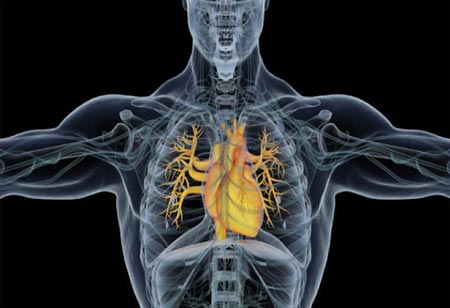
Abbott's Once-A-Day Ivabradine Receives DCGI Approval for Heart Failure and Angina patients


Press Release, 0
In India, estimates of people with heart failure range between 1.3 and 4.6 million, with 0.5–1.8 million new cases recorded every year. According to the Global Burden of Disease study, an estimated 14.4 million men and 7.7 million women have lost their productive years to coronary heart disease-related disability.
While the burden of the disease is high in the country, non-adherence to treatment remains a key challenge. Studies have found that many people with cardiac disease in India don’t take their medicines as prescribed by their doctor and an AIIMS study estimates that non-adherence to medication ranges from 24% for people with cardiac disease to 50%-80% for people with hypertension.
With its new formulation, Ivabradine PR tablets can be prescribed as a once-a-day medicine compared to the multiple dosing generally required by patients for the
management of the disease. A phase 3 clinical study conducted by Abbott across 21 centers in India, the first of its kind to be conducted for this formulation, showed Ivabradine PR once-a-day formulation to be comparable with the conventional Ivabradine twice-a-day, in the management of patients with stable chronic heart failure, with comparable efficacy and safety profile.
Talking about Ivabradine as a therapy for heart failure patients, Dr. Bharat Chanana, MD, DM CARD, Maharaja Agrasen Hospital explains, “45% of patients suffering from heart failure have a high heart rate with about 40% being hospitalized. The new once daily formulation of Ivabradine will facilitate patient adherence to treatment by reducing the pill burden. This will help control their heart rate and thus reduce hospitalization and improve quality of life.”
This formulation has been developed at Abbott’s Innovation & Development (I&D) center in Mumbai. The I&D center is an important global innovation hub for Abbott’s pharmaceutical business. Researchers at the I&D center use local insights to anticipate patient needs. These insights are linked with existing and innovative technologies to deliver meaningful innovation. Insights from physicians revealed the need for a simpler, more convenient dosing for Ivabradine, which led to the once-a-day solution.
Commenting on the new formulation, Abbott’s Regional Medical Director, Dr. Balagopal Nair, said, “Our goal is to improve health by enhancing medicines to meet patients’ unmet medical needs. Adherence to therapy is a critical factor to maximize the overall health of people with chronic heart failure or chronic stable angina. We have used the best technology and science to develop this new dosage formulation. The convenient once-a-day formulation will help improve overall treatment adherence, leading to better health outcomes.”
Chronic heart failure is a progressive condition in which the heart is unable to pump sufficiently to maintain blood flow to meet the body's demands for oxygen. Chronic stable angina usually occurs due to obstruction or spasm of the arteries that supply blood to the heart muscle. Ivabradine helps maintain a stable heart rate and prevent it from spiking, which is an important prerequisite in reducing symptoms and in improving the prognosis of both conditions.
Talking about Ivabradine as a therapy for heart failure patients, Dr. Bharat Chanana, MD, DM CARD, Maharaja Agrasen Hospital explains, “45% of patients suffering from heart failure have a high heart rate with about 40% being hospitalized. The new once daily formulation of Ivabradine will facilitate patient adherence to treatment by reducing the pill burden. This will help control their heart rate and thus reduce hospitalization and improve quality of life.”
This formulation has been developed at Abbott’s Innovation & Development (I&D) center in Mumbai. The I&D center is an important global innovation hub for Abbott’s pharmaceutical business. Researchers at the I&D center use local insights to anticipate patient needs. These insights are linked with existing and innovative technologies to deliver meaningful innovation. Insights from physicians revealed the need for a simpler, more convenient dosing for Ivabradine, which led to the once-a-day solution.
Commenting on the new formulation, Abbott’s Regional Medical Director, Dr. Balagopal Nair, said, “Our goal is to improve health by enhancing medicines to meet patients’ unmet medical needs. Adherence to therapy is a critical factor to maximize the overall health of people with chronic heart failure or chronic stable angina. We have used the best technology and science to develop this new dosage formulation. The convenient once-a-day formulation will help improve overall treatment adherence, leading to better health outcomes.”
Chronic heart failure is a progressive condition in which the heart is unable to pump sufficiently to maintain blood flow to meet the body's demands for oxygen. Chronic stable angina usually occurs due to obstruction or spasm of the arteries that supply blood to the heart muscle. Ivabradine helps maintain a stable heart rate and prevent it from spiking, which is an important prerequisite in reducing symptoms and in improving the prognosis of both conditions.